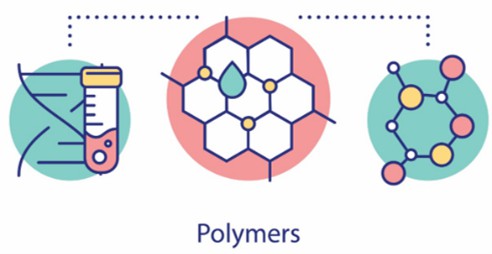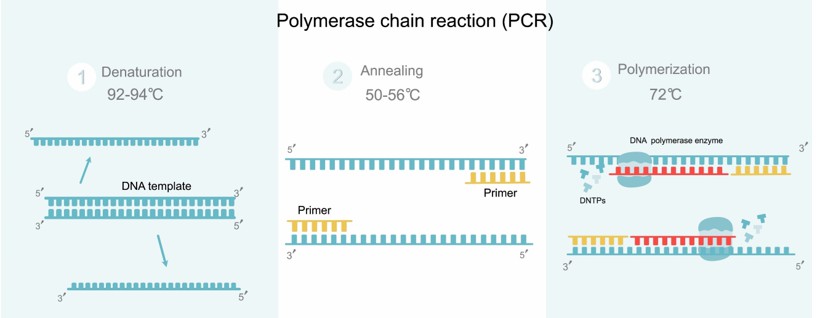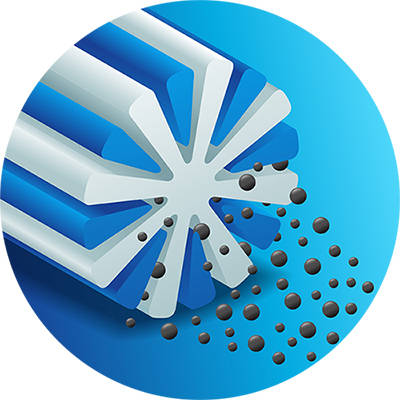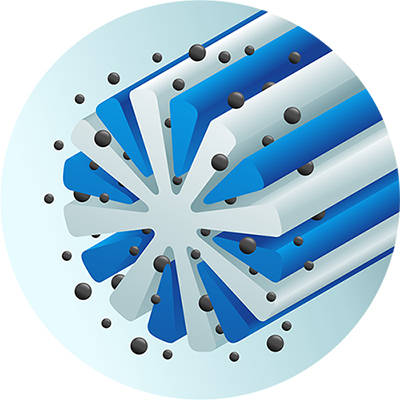Reagents for Polymerization
Browse by
Introduction

The polymerization reagent is a weak bond compound that can be easily decomposed into active substances, which can initiate the polymerization of monomers. Generally, polymerization reagents can be divided into the following broad categories: chain transfer agents, cross-linking agents, polymer additives, polymerization catalysts, polymerization inhibitors, and polymerization initiators.
Free Radical Polymerization Reagents
The radical polymerization reagents are prone to decompose into radicals themselves and have weak bonds in their structure. They are mostly azo and peroxy compounds. For example, azobisisobutyronitrile (AIBN) is the most commonly used azo initiator. Generally, AIBN does not induce decomposition when used at 45-80 °C, so it is widely used in the study of polymerization kinetics. In addition, AIBN has the advantage of stability and storage security. Peroxy initiators are divided into inorganic and organic peroxy initiators. Benzoyl peroxide (BPO) is the most commonly used organic peroxy initiator. Inorganic peroxy initiators, such as peroxides, are mostly used in emulsion and aqueous solution polymerization.
Anionic Polymerization Reagents
Generally, anionic polymerization reagents are alkali metal and alkali metal organic compounds, which are usually electron donors or nucleophilic reagents. In anionic polymerization, butyllithium is mostly used for low-activity conjugated dienes, while sodium alkoxides and potassium alkoxides are mostly used for high-activity cyclic ethers.

Other Polymerization Reagents
In addition to the above, reagents for polymerization include chain transfer agents, cross-linking agents, polymer additives, polymerization catalysts, polymerization inhibitors, polymerization initiators, and controlled radical polymerization reagents. Chain transfer agent acts as a chain transfer agent in the chain polymerization reaction and has the property of increasing chain activity. Cross-linking agents allow linear polymers to be linked to each other to form a net-like structure. Polymer additives can impart or enhance certain properties of polymers. Polymerization catalysts can facilitate the polymerization reaction. Conversely, polymerization inhibitors can inhibit the occurrence of polymerization reactions. The controlled radical polymerization reagents can facilitate the reaction of ring-opening addition of cyclic compound monomers to linear polymers.
If you are interested in our polymerization reagents, please contact us immediately!
References
- Moad, G. et al. The history of nitroxide-mediated polymerization. 2015.
- Watson, B.L. et al. Synthesis and use of a hyper-connecting cross-linking agent in the hole-transporting layer of perovskite solar cells. Journal of Materials Chemistry A. 2017, 5(36): 19267-19279.


 Chain Transfer Agents
Chain Transfer Agents
 Crosslinking Agents
Crosslinking Agents
 Polymer Additives
Polymer Additives
 Polymerization Catalysts
Polymerization Catalysts
 Polymerization Inhibitors
Polymerization Inhibitors
 Polymerization Initiators
Polymerization Initiators
 Reagents for CRP
Reagents for CRP












